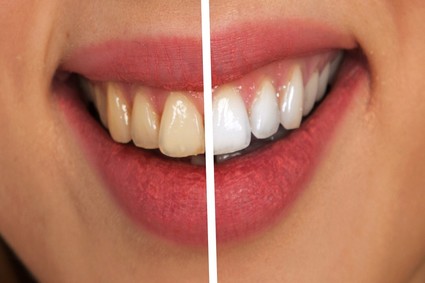 There’s a link between harmful bacteria, plaque, and tartar. Let’s try to understand how these factors can affect your oral health and ways to control them.
There’s a link between harmful bacteria, plaque, and tartar. Let’s try to understand how these factors can affect your oral health and ways to control them.
Bacteria Present In the Mouth & Cause Harm To The Teeth
According to research work published by the Journal of Clinical Microbiology, there are more than 700 types of bacteria present in various corners of the mouth and on the tongue as well. However, not all are harmful. The harmless ones are referred to as probiotics, and they even help in food digestion. There are a few harmful bacteria that causes decay and gum infection(s). The natural mechanism in the mouth keeps a balance between good and bad bacteria. But poor dental hygiene results in imbalance.
When it comes to the bacteria that are known to cause damage, the discussion must start with Streptococcus mutans. The bacteria are present in all parts of the mouth, and they can multiply with the help of food particles from sugary food items. S. mutans create acids that attack and damage the tooth enamel.
The next two types of bacteria that deserve attention are Porphyromonas gingivalis and Treponema denticola. Besides loosening teeth, both are known to trigger periodontal disease, and inflammation in the gums. They are also known to negatively impact the behavior of friendly bacteria present in the mouth.
What’s Plaque? How To Stop Its Formation?
The bacteria in the mouth mix with saliva as well as food particles and create a colorless sticky layer on the tooth surface called plaque. As it keeps on forming in spite of regular brushing, the coating further triggers tooth decay and other teeth infections.
Food particles left behind after eating sugar and starch-rich items like candy, cakes, raisins, soft drinks, and milk help create plaque. If it remains unattended for months, the plaque builds acids that can damage the enamel and form cavities in teeth. If plaque stayed unattached minerals from saliva calcify it and it becomes tartar. It can result in gingivitis or periodontitis. In severe cases, plaque can reach the roots below the affected tooth and damage the supporting bone, and finally tooth loss.
Ways To Getting Rid Of Plaque and Tartar
For keeping the tooth surface free from plaque, it is advisable to brush your teeth at least twice a day. Flossing can help in cleaning food particles trapped between teeth.
Limiting the consumption of sticky snacks along with starchy and sugary food is crucial along with eating more green. Visit a dentist in Roswell for examination at least once every six months. If necessary, your dentist might recommend dental sealants to protect vulnerable teeth from decay. It involves creating a plastic coating on the tooth and preventing it from food and plaque retention. If you are looking for the best Roswell Dental Care, TruCare Dentistry can prove to be the right option.
What’s Tartar? Is It Linked To The Plaque? What Are The Ways To Deal?
Tartar or calculus can be referred to as a hardened layer of plaque that even reaches the area under the gum line. It creates a sticky space for the plaque to grow further and results in rapidly spreading tooth decay. It is usually a brown or yellow-colored layer.
Tartar doubles up the trouble for smokers, and tea/coffee lovers as the layer absorb the stain and creates cosmetic problems for the teeth. It can also spread the sticky stuff on dental fillings and other dental work. The layer makes brushing and flossing harder. Plus, the tarter formed above the gum line can irritate and trigger pain as well.
If ignored, tartar has the potential to cause Periodontitis, a severe gum infection that has been linked with heart diseases by researchers.
Dental care experts have specially designed tools to remove this layer. The patient needs to undergo a dental procedure called scaling and root planning also known as deep cleaning for the removal of tartar under the gumline. Depending on the condition of the infection, the dentist may recommend anti-biotic medicines, special fluoride toothpaste for tartar, along with antiseptic mouthwash.
The best way to keep tartar away is by preventing the formation of dental plaque. Brush twice a day and use ADA approved soft bristles toothbrush or electric toothbrush that’s designed to reach back molars. Use dental floss to clean the teeth. Just like in the case of plaque, drinking plenty of water and controlling the intake of sugary food items and soda is crucial. Going for a dental check-up and cleaning every six months is necessary.
If you are looking for one of the best Roswell Dentists to get treated for tartar and plaque-created gingivitis or periodontitis, please reach out to us at TruCare Dentistry for your appointment. Dr.Toral has more than 10 years of experience in handling complicated cases affected by tartar.
